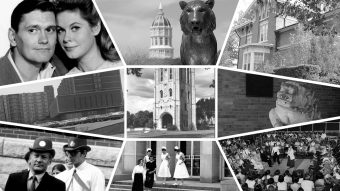Dec. 20, 2018
1. Mizzou celebrates first Nobel Laureate
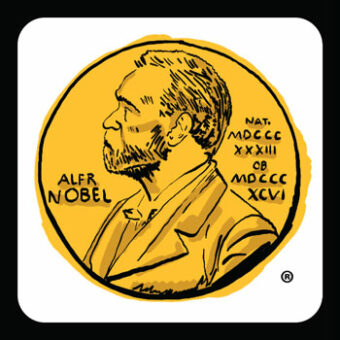
In October, George P. Smith became the first Mizzou professor to receive a Nobel Prize. The 77-year-old Curators Distinguished Professor Emeritus of Biological Sciences was among a trio of researchers that The Royal Swedish Academy of Sciences awarded the 2018 Nobel Prize in chemistry. His research has led to the production of new antibodies used to cure metastatic cancer and counteract autoimmune diseases, among other applications.
Smith’s achievement — dubbed “harnessing the power of evolution” by Nobel officials — also represents the first Nobel Prize awarded within the University of Missouri System.
His achievement is proof that students at Mizzou learn from professors who are the best in their fields.
2.Two initiatives show MU’s impact on the state, nation and world is growing
Chancellor Alexander N. Cartwright announced an ambitious plan to double research funding during the next five years. Plans call for working with faculty to secure more research funding though sources, including the National Science Foundation, the National Institutes of Health, industry and foundations.
This bold goal will ensure that MU faculty, staff and students are able to accelerate research breakthroughs that improve lives.
A cornerstone in this effort is a new precision medicine facility dedicated to tackling grand challenges in health care. The more than $200 million complex would be a shared resource to fight cancer, neurological and vascular diseases — a bold step for the future of health in Missouri.
<
3.Freshman enrollment increase among highest in SEC
MU was one of two Southeastern Conference universities in 2018 to experience double-digit growth in new freshmen, a surge of 13 percent from 2017. The increase is the second-largest jump in MU’s freshman class during the past quarter-century.
This freshman class also is more diverse and academically gifted. First-time college student minority enrollment increased from 778 last year to 1,015, with spikes in enrollment among African Americans, Hispanics and those who identify as multiracial. In addition, the class retained the university’s strong ACT average of 26, which is significantly higher than the state average of 20.4 and the national average of 21.
4.Mizzou welcomes a trio of new leaders
Latha Ramchand, the former dean of the C.T. Bauer College of Business at the University of Houston, was appointed in the fall as the new provost and executive vice chancellor for academic affairs. She arrived on campus with a proven record of leadership and the expertise to lead programs of excellence, student success initiatives, research, economic development and engagement.
Sarah Thompson, associate vice chancellor of health professions and professor in the College of Nursing at the University of Colorado Denver, was named dean of the MU Sinclair School of Nursing over the summer.
Carolyn Henry took over in February as dean of the College of Veterinary Medicine after serving as the college’s associate dean for research and graduate studies and interim dean.
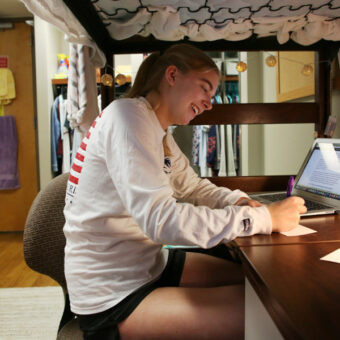
5.Living on campus becomes more affordable
Students found out this fall that Mizzou will be lowering the costs to live and dine on campus — again. As a result, students who select economy living and dining plans can live and eat on campus for as little as $850 a month.
MU leaders made this decision based on feedback from students and their families, ensuring that a world-class education at Mizzou is accessible and affordable.
6.Tigers land invite to the Liberty Bowl
Mizzou, under the direction of third-year Head Coach Barry Odom, came into bowl season this year as one of the hottest teams in the country, winning four straight games, and five of its last six, to close the 2018 regular season.
According to some experts, Mizzou played one of the toughest schedules in the nation and still managed to have one of the top road wins in the country on Nov. 3, when the team beat the No. 10 Florida Gators 38-17.
Plus, the UM Board of Curators voted unanimously in December to extend Odom’s contract through the 2024 season.
M-I-Z
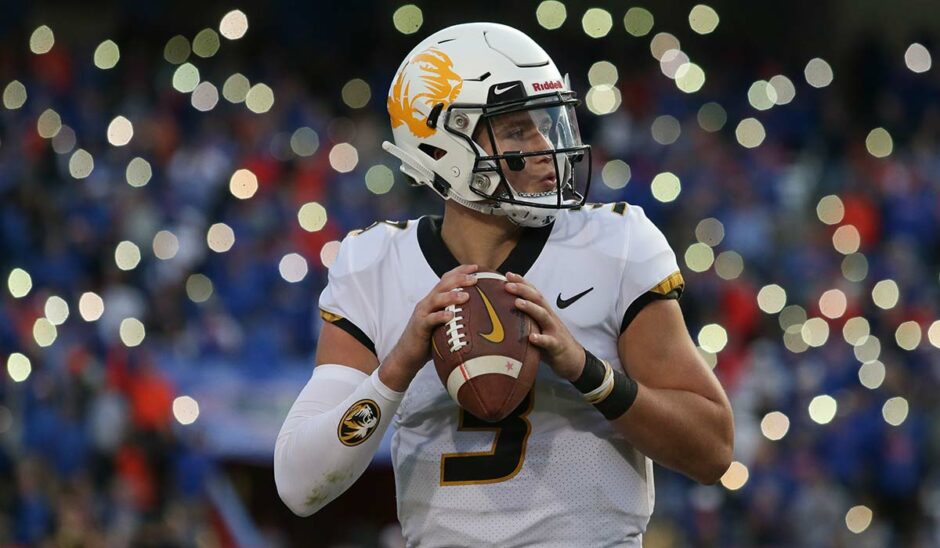
7. Multi-billion dollar impact
A new study this year found that MU has a $3.9 billion impact on the state of Missouri. More than 46,800 people have jobs either directly or indirectly because of the Columbia campus, and more than $117 million in state and local revenue taxes are collected because of MU — that includes taxes on sales, food, gas, lodging and more.
Mizzou is committed to the welfare and success of the citizens of Missouri.
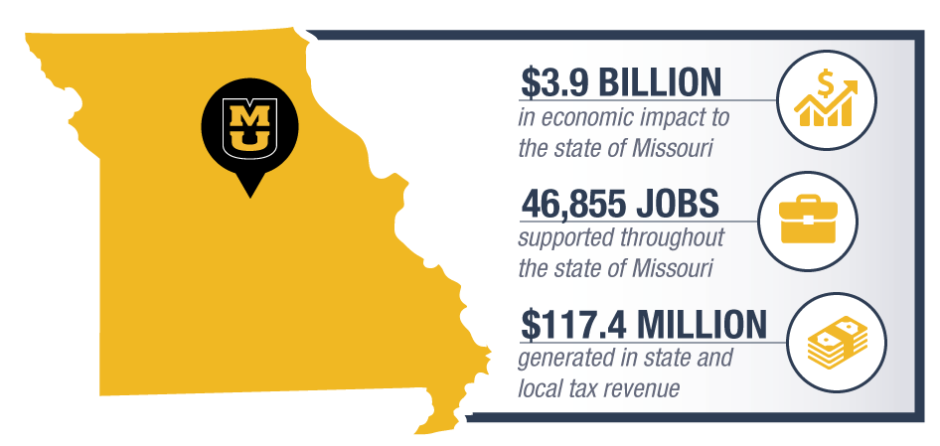
8.MU College of Education awarded $22 million to help rural schools
This fall, the college’s eMINTS National Center received two U.S. Department of Education grants, including the largest one in the history of the college. The money will go toward expanding a successful educational technology professional development program into rural schools in Missouri and Kansas.
The awards support MU’s goal to double research funding in the next five years and the college’s goals of strengthening STEM education and learning technologies in classrooms.
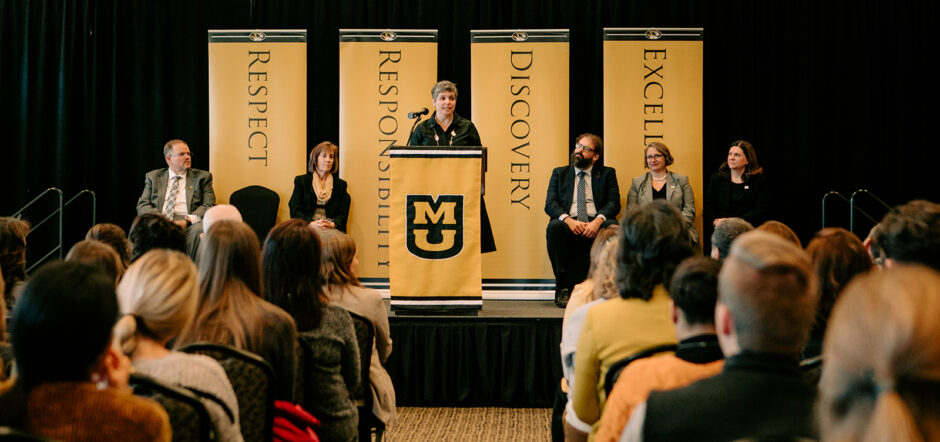
9.A buzz-worthy surprise during the solar eclipse
This year, MU research revealed that during the total solar eclipse on August 21, 2017, bees stopped buzzing. The discovery came after researchers placed tiny microphones near bee-pollinated flowers in 16 locations across Missouri, Idaho and Oregon. What they learned was in those moments the moon passed over the sun and Earth fell into complete darkness, the bees acted as if night had fallen: They stopped buzzing. This buzz-worthy news was picked up across the globe, including in Popular Science.
10.Construction of state-of-the-art research facility celebrates milestone
The $28.2 million Plant Growth Research Facility marked its “topping off” — or completion of the building’s framework — this fall. The facility will enhance the campus’s plant biology programs through a major expansion of state-of-the-art research greenhouse and plant growth chamber facilities with controlled lighting, temperature, humidity and CO2 environments.
The project, which will expand MU’s cutting-edge resources and help scientists address global hunger issues, is expected to be completed by April 2019.
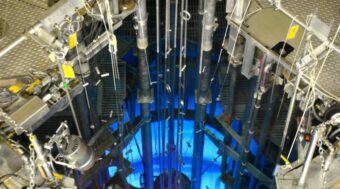
11.For first time in 30 years, critical medical radioisotope has domestic supplier
The MU Research Reactor is now the sole U.S. provider of a radioisotope, a treatment for thyroid cancer — the fastest growing cancer in the country.
It was estimated that there would be more than 53,000 new cases of thyroid cancer in the U.S. in 2018 with an estimated 2,060 deaths from the disease, according to the National Cancer Institute. A domestic supply of Iodine-131 (I-131), a critical radioisotope widely used for diagnosing and treating thyroid cancer and hyperthyroidism, is vital due to increasing demand and the isotope’s short shelf-life.
Until now, there had been no U.S. supplier since the 1980s. But thanks to the research reactor, there is a lifesaving treatment that only we produce.
<
12.MU establishes Teaching for Learning Center to support student success, further advance teaching excellence
In a continuous effort to support student success at the state’s public flagship research university, MU announced in May that it will invest $750,000 to open a Teaching for Learning Center. The center, which already has a virtual presence, will provide professional development and teaching assistance programs for MU faculty, teachers and instructors.
With a physical location, the center’s staff will serve as a university-wide resource for information and services, conduct professional education and development workshops, and establish new programs that support the university’s mission of excellence in education and student success.
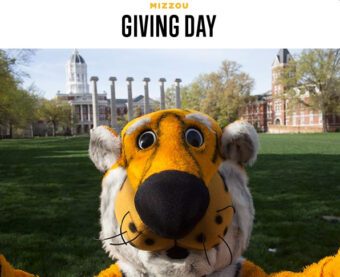
13.Mizzou Giving Day surpasses last year total by more than $5 million
The 2018 annual Mizzou Giving Day raised more than $13.7 million — surpassing last year’s total by more than $5 million. The successful event, which was celebrated during a 24-hour period in mid-March, was the university’s second daylong campaign to raise support from MU alumni and friends.
Mizzou Giving Day is a part of the Mizzou: Our Time to Lead campaign. With an overall fundraising goal of $1.3 billion, the comprehensive campaign will help secure MU’s status among the nation’s elite public universities.
14.New material could increase battery life of electronic devices by more than a hundred-fold
A group of physicists led by Deepak Singh, associate professor of physics and astronomy, has developed a material that addresses the chief complaints about smartphones, laptops and other battery-operated electronics — battery life is too short and — in some cases — the devices generate heat.
The team has applied for a patent for a magnetic material that employs a unique structure — a “honeycomb” lattice that exhibits distinctive electronic properties.
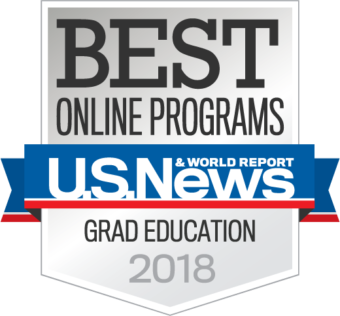
This is a stellar example of how the work of MU researchers is affecting the lives of people all over the world.
15.Mizzou’s online graduate education degree programs earn national ranking
According to U.S. News & World Report 2018 Best Online Programs Rankings, Mizzou’s online master of education programs ranked higher than any other institution in the state. The College of Education offerings climbed 25 positions from last year, tying for 36th in the nation.
U.S. News also ranked Mizzou’s online bachelor programs in the top 40 percent of all undergraduate online programs, which is good news for individuals who need flexibility to earn degrees from afar.
16. Kemper awarded to exemplary faculty
Recipients of one of the university’s most prestigious awards this year were David J. Schulz, an associate professor of biological sciences; Carrie E. Duncan, assistant professor of religious studies; Ray Ronci, teaching professor of English; Shelly Rodgers, professor of strategic communication in the Missouri School of Journalism and Carlos Sun, professor of civil and environmental engineering.
This year marked the 28th anniversary of the William T. Kemper Fellowships for Teaching Excellence, which were established in 1991 with a $500,000 gift. Kemper, a 1926 MU graduate, was a well-known civic leader in Kansas City until his death in 1989. His 52-year career in banking included top positions at banks in Missouri, Kansas and Oklahoma. Commerce Bank manages the trust fund.
17. Students spend breaks serving others
While breaks are often a time for vacation, some MU students decided to spend their Spring Breaks and Thanksgiving holidays volunteering to serve others. Mizzou Alternative Breaks, which is led completely by students, gives participants an opportunity to learn about important community issues such as education, health, homelessness and more.
For some students, these alternative break activities are among their most memorable college experiences.
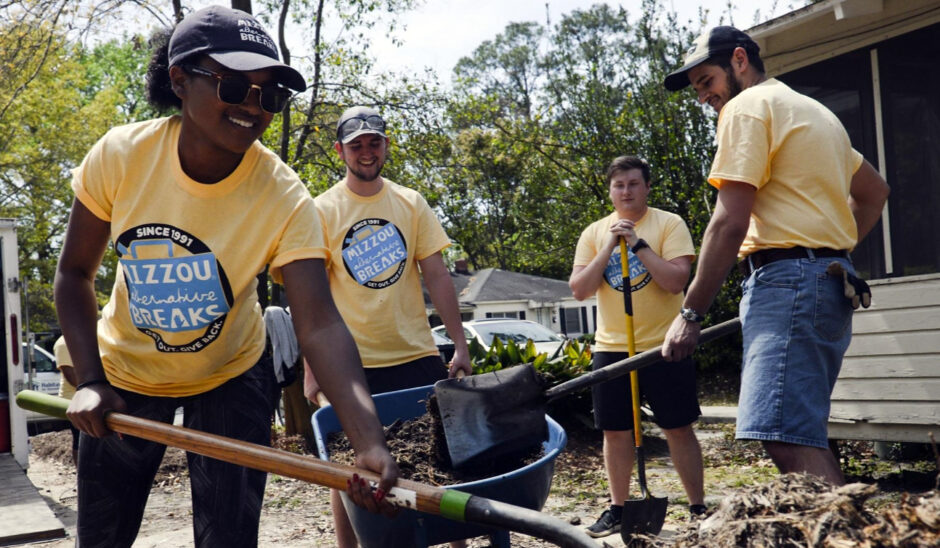
18. MU Chancellor announces new vision for MU Extension and Engagement
The “all things Missouri” missions involves the formation of the MU Engagement Council, a core group of university leaders focused on MU’s current and emerging off-campus engagement efforts.
This includes three tech-based initiatives that will help Extension expand its reach and impact on state. Among those is a statewide data mapping and reporting system. There also is the IMPACT website, a publicly searchable inventory of programs and educational opportunities that bring resources directly to the people of Missouri. Finally, Nexus@Mizzou is a revamped MU Extension website that will provide an easy-to-use single entry point for all Extension experiences.
MU Extension’s new vision aims to show that Mizzou’s campus reaches all of Missouri’s 114 counties.
19. New scholarship fund could help 800 Kansas City high schoolers attend Mizzou
In December, Chancellor Cartwright announced a $40 million fund that will provide 800 Mizzou scholarships over eight years for students living in the Kansas City area. The fund will be supported by MU, the University of Missouri System and KC Scholars.
KC Scholars, launched in 2016, currently awards approximately 500 college scholarships annually for students from the Kansas City metro region to attend one of 17 partner colleges and universities in Missouri and Kansas, including MU. Currently, 46 KC Scholars awardees are enrolled at Mizzou, the largest proportion of KC Scholars students at any college or university.
The new funding will support 800 additional scholarships over the next several years, each worth $10,000 per year for up to five years, for students who choose to enroll at MU.
20. Mizzou faculty recognized by prestigious academic organizations
The American Association for the Advancement of Science (AAAS) selected three MU faculty members to be fellows in recognition of their extraordinary achievements in advancing science: Shi-Jie Chen, Curators Distinguished Professor of physics and biochemistry; Scott C. Peck, professor of biochemistry; and Johannes Schul, professor of biological sciences. The trio was among 416 fellows elected this year and will be recognized during the 2019 AAAS Annual Meeting in Washington, D.C.
Two faculty members also were selected as fellows to the National Academy of Inventors, the highest professional distinction for academic inventors. They are Elizabeth Loboa, dean of the College of Engineering, who has actively worked to promote innovation and world-class research at MU; and Gary Stacey, an investigator in the Bond Life Sciences Center and a professor of plant sciences and biochemistry in the College of Agriculture, Food and Natural Resources. Stacey has won several awards and honors for his research on the interaction between microbes and plants.

